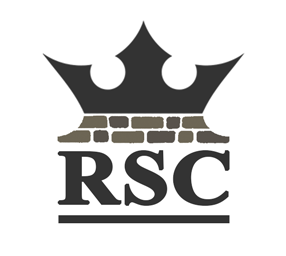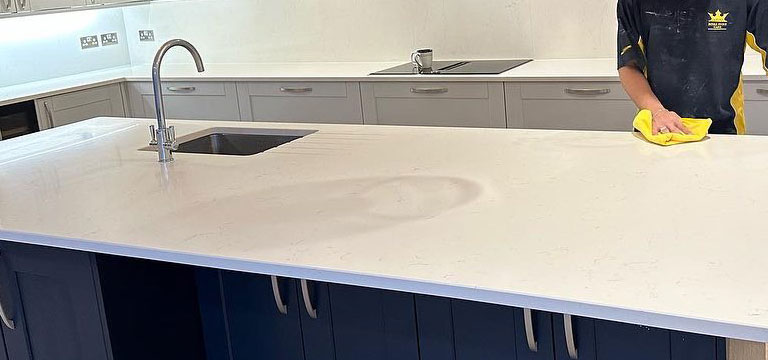By definition, a kitchen is a food preparation area. And, where you find food, there will also be bacteria. What’s more, a kitchen can breed bacteria even if the food in question isn’t rotten. If you leave items that should be kept in the fridge at room temperature for more than a couple of hours, for example, these can provide a feast for the microscopic invaders. Yet the food can still look and smell as though it is safe to eat. (Equally, that dollop of mayonnaise that’s been left on the worktop since yesterday can similarly provide a bacteria-friendly buffet.)
So everyone stays safer with a clean kitchen. And the areas of this space which come into direct contact with food deserve the greatest attention. That means you really need to clean surfaces like worktops and sinks every time you use them.
It’s also important to appreciate the difference between cleaning and disinfecting. Even warm water and washing-up liquid won’t disinfect. While cleaning shifts grime grease and some bacteria, disinfecting actually kills them on contact.
How can I clean natural stone worktops in an eco-friendly way?
If you want to be gentle on the planet, disinfect using a mix of hydrogen peroxide and white vinegar, sprayed separately from a second bottle. This is great for worktops as a way of blitzing germs with no harsh chemicals.
One tip to bear in mind is to store hydrogen peroxide (3% strength) in a dark spray bottle. This keeps it working effectively, since light exposure degrades the solution.
What’s more, you don’t even need to rinse post-application, since the vinegar odour soon evaporates. So your surfaces are both disinfected and safe to use. First, simply wash the surface as you would normally. And then spray on the vinegar – follow up with the hydrogen peroxide. (But don’t place both liquids in the same bottle.)
Here are so more tips for keeping your countertops germ-free:
Mop up spillages immediately
If you mop up any spillages straight away, the bacteria won’t be able to establish themselves in the first place. And if you’re lucky enough to have a piece of natural stone as your worktop (such as granite, quartz or marble), this is also really important to prevent staining.
Clean your cloths and sponges
If you disinfect your worktops with a sponge or cloth riddled with bacteria, you will be doing more harm than good. These items can be fertile breeding grounds for germs. So clean them after use, dry out thoroughly when you are not using, and replace every fortnight or so. You can wash cloths out, or throw them in the washing machine or dishwasher. And you can even zap sponges in the microwave for a couple of minutes.
Keep surfaces dry
Mould, bacteria and fungus thrive in damp settings. Keep countertops free from moisture and wipe down with a completely dry cloth after cleaning with soap and water. Equally, be fussy abut drying areas where condensation accumulates or steam settles in between cleanings.
Get in touch
Royal Stone Care specialises in the care of natural stones – from marble cleaning to granite chip repair and limestone restoration in London. So we’re here for all the big jobs and always happy to chat about care of your surfaces. Contact us today to learn more and for a no-obligation quote.

